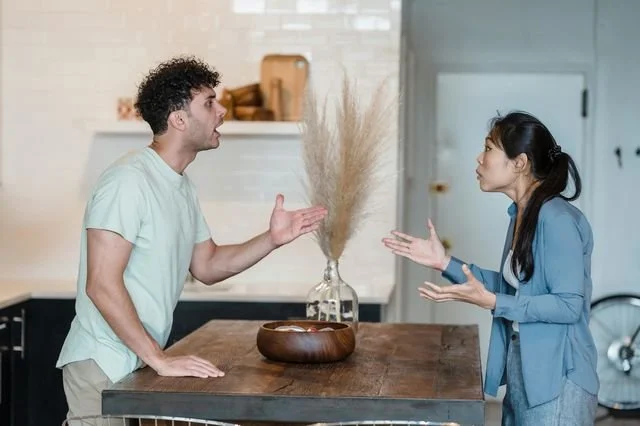In close relationships, debate and disagreement are inevitable. You are two different people. You come from different backgrounds and life experiences. Because you see the world differently, you will see different issues and concerns differently.
This kind of disagreement has the potential to sharpen ideas and even strengthen relationships. But disagreements can also devolve into bitter conflict, leaving you and your partner wounded and weary. So it is important to recognize behaviors that signal the difference between a healthy debate or a fight.
Respectful Listening
At the heart of every productive debate is genuine, respectful listening. When you and your partner take the time to truly hear each other—setting aside distractions, judgment, and the urge to interrupt—your engagement is marked by empathy and curiosity. In a healthy debate:
· You allow your partner to finish their thoughts without interjecting.
· You ask questions to clarify, not to corner or trap.
· You make an effort to understand the underlying feelings and perspectives behind words.
Respectful listening keeps debate from becoming a contest of your egos. It ensures that even amidst passionate disagreements, each person feels valued and heard.
Focus on Ideas, Not Personal Attacks
A healthy discussion will separate ideas from personal identity. You criticize concepts or ideas, not your partner. The conversation revolves around the strengths and weaknesses of arguments, evidence, and reasoning, rather than the perceived shortcomings of your partner.
· Keep your language civil and professional.
· Stay away from Insults, sarcasm, and name-calling.
· Even when strongly disagree, your respect for your partner remains.
Openness to Being Persuaded
If you can listen respectfully and focus on ideas instead of personal attacks, it creates an atmosphere where you are open to the perspective of your partner. Marriage therapist John Gottman talks about accepting the influence of your partner. If your partner is sharing things that she wants to be different in the relationship, it is easy to hear them as criticisms and become defensive. Accepting influence means looking for some truth in what your partner is saying.
When you are open to the stance of your partner, you enter the conversation with humility. You are open to what they are saying. You soften your position enough to consider the concerns that your partner is sharing.
Nonverbal Signs of Engagement
Words are only part of the story; nonverbal cues reveal much about the nature of a conversation. In a constructive setting, body language, tone, and facial expressions communicate openness and respect to your partner.
· Maintain eye contact without being confrontational.
· Watch your posture. Is it relaxed or defensive?
· Use gestures that invite participation instead of shutting it down. These gestures include attentive nodding and even respectful silences.
Emotional Regulation
Discussions with your partner, especially about sensitive issues, can stir strong feelings, In a healthy exchange, you manage your emotions instead of unleashing them. Be aware of your composure. Be aware of things like the tone of your voice. Resist the urge to escalate. If tempers flare, you mutually agree to cool down and reconnect constructively. Check in with your partner from time to time to see if the conversation still feels safe for them.
Shared Goals and Mutual Respect
Remember this person is a partner whom you love and care for. The goal of the debate is not to win. Instead, it is to learn from each other or simply understand their perspectives. Does it feel like you are working together, not against each other?
Growth and Learning as Outcomes
The most telling sign of a healthy debate is what you take away from it. When the conversation ends, do both of you feel energized, enlightened, or inspired? Even if you don’t reach a consensus, you feel that you have learned something valuable about each other.
Debates can be a celebration of difference. They can be a dance of ideas, values, and perspective. They can sharpen your mind. They can deepen connection with your partner. My marriage counseling specialty page give you more information about improving your relationship.



